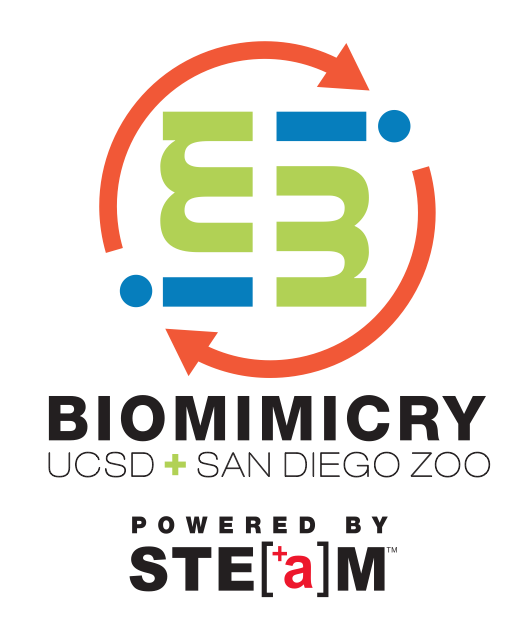|


Biomimicry, also known as bioinspiration or biology-inspired engineering, is an interdisciplinary field in
which nature serves as a model or inspiration for designing innovative solutions to a wide range of engineering problems.

|
INTRODUCTION TO BIOMIMICRY
FOR HIGH SCHOOL STUDENTS
SATURDAYS SEPTEMBER 22 - NOVEMBER 17 2012
10:00am - 12:00 pm UCSD Extension Mission Valley
12:00pm - 3:30pm San Diego Zoo
This course, a unique partnership between the University of California, San Diego and the world-famous San Diego Zoo, is led by an interdisciplinary and knowledgeable instructor team spanning both institutions. Stephanie Snyder, Marine Biology Doctoral Student at the Scripps Institution of Oceanography, and Sunni Robertson, Lead Educator
Guide at the San Diego Zoo, lead course instruction that covers a wide range of biological and engineering topics and in addition features expertise from horticulturists and keepers of the San Diego Zoo.
This class provides students with a unique look at biomimicry by coupling hands-on activities in the classroom with mission-based learning at the Zoo. Each Saturday, students will spend the morning learning about the fundamental principles that shape design in both man-made technologies and the natural world. In the afternoon, students will explore living examples of these principles within the Zoo’s collection of animals and
plants. The daily schedule includes a morning session at the UCSD Extension Offices in Mission Valley consisting of a combination of lecture, hands-on activities, group presentations, and class discussion. Students will then travel to the San Diego Zoo for an afternoon session consisting of animal demonstrations, behind-the-scenes experiences, and “adaptation scavenger hunts.”
Course Objectives
The primary objective of this course is to foster an appreciation of both nature and interdisciplinary research by demonstrating the innovative ways that nature uses the principles of physics, chemistry, and biology to solve problems. In doing so, this course deepens students’ knowledge of conventional disciplines and emphasizes the value inherent in conservation. Secondarily, this course strives to strengthen communication and leadership skills through group activities, discussions, and presentations.
Students will work in pairs on a Design Challenge,
where an adaptation from an animal or plant is used
as inspiration for solving an engineering challenge.
|